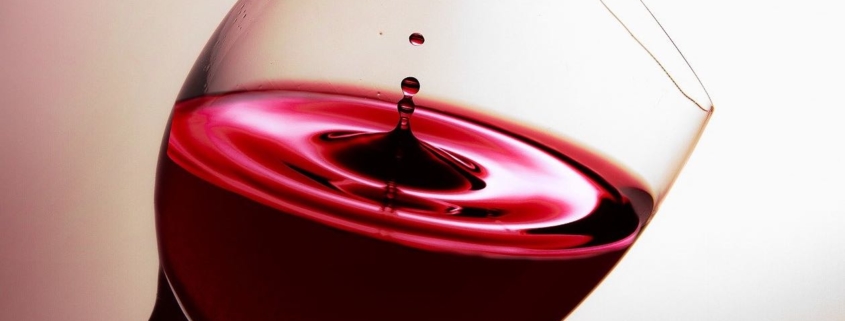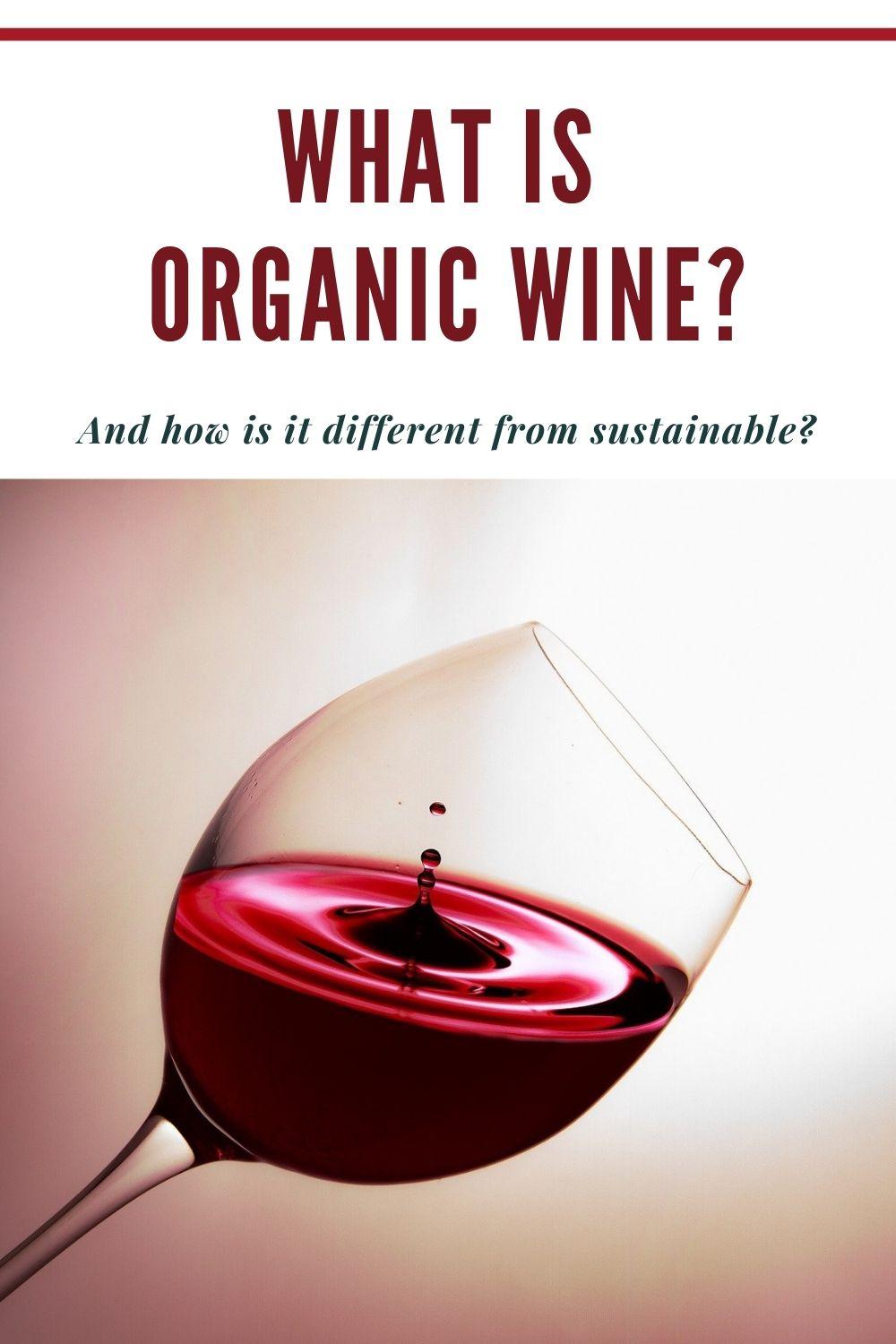What is Organic Wine & What are the Benefits of Drinking Organic Wines?
With the beginning of a new year, we often make plans to “do better.” And whether that’s eating well, losing weight or doing more for the planet, it usually has something to do with food and drink. So for those of you whose goals include any of the above, I would like to suggest choosing organic wine as your next goal.
What is organic wine?
The topic of organic wines is much more confusing than you might think. Organic wine meaning seems to be different things to different people. Most of us assume that if we’re buying a wine made from organic grapes, it is organic. But, although this is an excellent choice for the health of the planet, that is not how the USDA defines organic wine. Nor is it how organics are sold in the United States. Here, the definition centers around sulfites.
RELATED: Eating Organic Food for Improved Sexual Health and Wellbeing
Does organic wine have sulfites?
What is probably the most important specification of a USDA-certified organic wine is that it is free of sulfites. This might sound great to you, particularly if you have sensitivity to sulfites. However, anyone in the wine business will tell you that sulfite-free is not great for a bottle of wine.
Winemakers use sulfites at certain times during the winemaking process to control bacterial growth. That’s right, the reason for added sulfites is to stop bad bacteria from growing in the wine. The SO2 might be added during fermentation when the wine heats up. (This is a critical stage for preventing bacterial growth.) Or it can also be used when the wine is transferred or bottled. But a USDA-certified organic wine does not have sulfites.
A problem with USDA-certified organic wines
Now that we understand the different distinctions between wines made without pesticides and those certified as organic, let’s talk about the reason organic wines have never really taken off in America. Although the process of organic winemaking has come a long way in recent years, it’s hard. And the result of producing preservative-free wines is that they lack shelf stability.
The average USDA organic bottle of wine has a shelf life of 3-6 months. Most winemakers with a talent and passion for their craft don’t want to make wines that are undrinkable in a few months. So the options for certified organics are traditionally extremely limited. But there’s a glimmer of hope that the future will bring change.
V2G organic red wine – the first USDA-certified organic and shelf-stable wine
The reason I initially grew interested in writing this article was a sales pitch. I’m going to be honest. I’ve always avoided certified organic wines. Instead, like most wine writers, I prefer to focus on wines with organically grown grapes and even biodynamic wines. (More on these later.)
But then I was sent a press release and samples of a new organic label called V2G, which stands for vine to glass. I was ready to shove the whole thing aside when a line in the marketing materials caught my eye. “V2G actually gets better with age and can be thoroughly enjoyed today or can be cellared for over two years.”
There’s an organic wine with a shelf life of two years? Now, this is interesting!
The winery materials explained that through a newly developed sterilization and “nano-filtration” process, a classic red wine can be produced without the harm of bacteria or the necessity of sulfites. The wine I tried, the first in what is supposed to be a full line of organically produced wines, is an organic Syrah-Cabernet Sauvignon from the Languedoc region of France. I can’t comment on how well it will age because I tasted my sample right away. But here are my tasting notes:
If you want to stick strictly to organics, this is a wine to get excited about. But if you’re used to drinking collectible wines – and I’m going to be completely candid – this wine is unremarkable. It is pleasing with decent balance and dark fruit notes. In other words, it is an easy-drinking red. But it is not a wine you are ever going to remember as something you must buy again – unless you’re looking for USDA certification. If you are, I recommend buying this V2G wine by the case.
What’s the difference between organic wines and wines made with organic grapes?
What does it mean when a wine is labeled that it’s made from organically grown grapes? This organic certification just designates that the grapes have been grown in healthy soil without the use of pesticides or herbicides. In addition, they’re made with fewer sulfites than you will find in most conventional wines and their organic status is overseen by a certifying body.
You may see wines labeled as natural wine. The term natural wines can be confusing. These wines are often made with organically grown grapes but they’re not certified as such.
The benefits of organic wine
Let’s take a closer look at how we might benefit from choosing an organic wine over a conventional wine.
Is it healthier?
Are organic wines better for you? The short answer is yes. Obviously, the fewer chemicals you ingest, the better. But you don’t necessarily have to drink a wine that’s been USDA-certified to enjoy a drink that’s made from grapes grown without chemicals.
That being said, you’ve probably heard that wine, particularly red wine, has benefits to heart health and sexual health. But does organic wine offer even more nutrition? While there is some evidence that some organic foods have higher nutritional content than their conventional counterparts, there is no scientific evidence to show that the heart health benefits of wine are greater if the wine is organic.
While they may not give you any nutritional benefits, organic wines may give you a psychological boost since you might feel better about drinking wines that support a healthy planet. (This is one of the biggest organic wine benefits.) But again, the wine doesn’t necessarily have to be USDA-certified. There are many other ways in which wineries can support healthy farming and winemaking that support a healthy planet.
RELATED: Discover the benefits of drinking high altitude wines
Is it vegan wine?
One last thing to keep in mind when considering the benefits of organic wines is that the wine may have been made with egg white fining or other animal byproducts. If you want to buy a wine that is both organic and vegan, be sure to check that the label indicates both. (The term vegan is not regulated by the USDA but there are several indicators that will help you know if a wine is vegan. The winery may add this information to the label. But if they don’t, you can look for terms like unfined. If you are a strict vegan, the best way to ensure your wine is 100% vegan is to check the Barnivore website, which keeps an extensive database of vegan wines.)
How is sustainable different from organic and what are the benefits?
If you are looking to make wine choices that are better for the planet, you don’t have to stick with organics. In fact, there are wines out there made by more environmentally friendly practices that are being used with some of the certified organics. What you want to buy are sustainable wines. These wines may contain sulfites; they may not be 100% organic but they all support a healthier planet.
As some of you know, I have very quietly worked part-time in the field of sustainability for almost four years. So, unlike organic wines, to which I have somewhat of an aversion, sustainability is right in my wheelhouse.
What is sustainability in the wine industry?
While the meaning of organic is very clear, sustainability is a blurry set of choices that can define a wine or winery as working to mitigate climate change. Basically, a sustainable winery is one that is working actively to reduce waste.
Steps that sustainable operations can take include avoiding pesticides, reducing water use, reducing greenhouse gasses, employing alternate energy sources, crop biodiversity and protecting local wildlife, among others. There are, I think, at least a dozen different credible certifications around the world to denote various levels of sustainability in the wine industry.
I find it very confusing. So my suggestion is that if you want to buy wines making an impact, simply look for wines labeled as they are made with organic grapes.
How are biodynamic wines different from organic wines?
If you’ve seen biodynamic on a wine label, you might be wondering how this differs from wines made with organically grown grapes. Biodynamic wines definitely fall under the umbrella of sustainability. And the grapes are grown without pesticides or synthetic fertilizers.
But biodynamic is a farming practice that embraces holistic agriculture health. This sustainable winemaking practice is much more complicated than organic farming. But for the purposes of supporting the planet, know that when you’re buying a biodynamic wine, you’re investing in wine that promotes a healthier planet.
READ NEXT: What is high altitude wine and why should you drink it?
How to support sustainable and biodynamic wineries
You might be surprised by how many wine choices there are if you’re looking to support sustainable winemaking. Some American wineries noted for sustainable practices include (but are not limited to):
Benziger (biodynamic)
Beringer Vineyards
Bogle Winery
Cayuse Vineyards
Chateau Ste Michelle
Domaine Carneros Winery
Edna Valley Winery
J Vineyards & Winery
Jordan Winery
King Estate (biodynamic)
Left Coast Estate
Ponzi Vineyards
Raymond Vineyard & Cellars (biodynamic)
Red Tail Ridge
Roederer Estate (biodynamic)
Sanford Winery & Vineyards
Sparkling Pointe
Stag’s Leap Winery
Tablas Creek (biodynamic)
ZD Wines
Additional sustainable wines resources
If you want to discover wineries from other parts of the world, here are a few resources:
Fair‘n Green Europe
Sustainable Winegrowing of France
Organic Wine Growers New Zealand
Sustainable Winegrowing Australia
Demeter Biodynamic Certification
This article was written in 2021 and most recently updated in January 2023.
- Carrot Juice Bloody Mary Mix: a sweet & sexy twist on a classic - March 21, 2024
- Authentic Japanese Shrimp Tempura Recipe - March 18, 2024
- Why Oceanside California is a Romantic Wine Country Destination - March 4, 2024
Did you know that eating the right foods can be the key to boost your sex life?
Subscribe to the Eat Something Sexy mailing list and get our exclusive list of Six Great Sex-Boosting Snack Foods for FREE!






Leave a Reply
Want to join the discussion?Feel free to contribute!